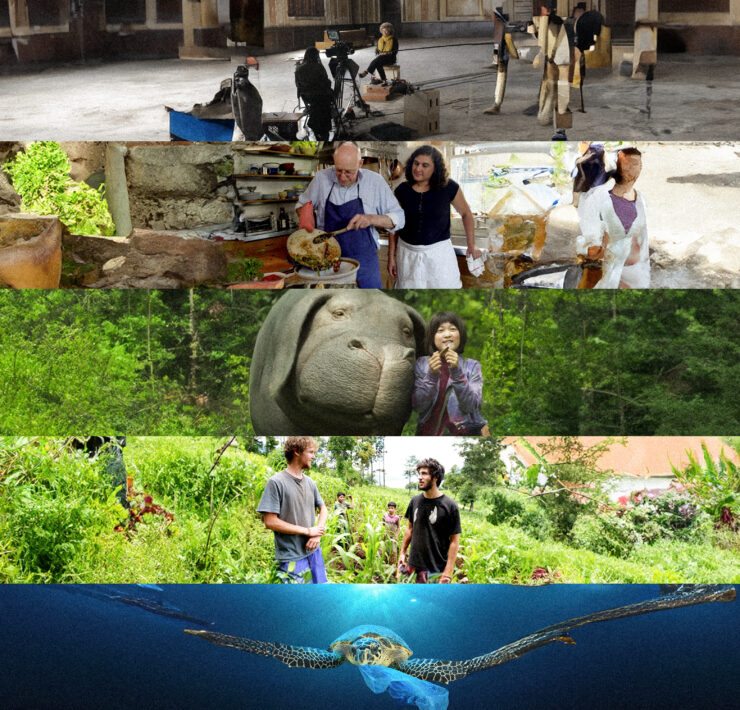Every generation has its superhero. In the 1980s that hero was Superman–truth, justice and the American way were just the thing to bring clarity to a world rent by a Cold War. In the 1990s, a dark, streamlined Batman took the superhero reins. But the Batman–as conceived of by multiple directors–ended the decade reveling in campy and laughable villains, becoming a punchline for a decade already steeped in sarcasm. The early 2000s had a squeaky clean Spider-Man who could unironically pose in front of an American flag, a symbol of post-9/11 hope. These superheroes not only reflect a deep desire within all humanity, but also reflect humanity itself—the state, struggles and hopes of a given people at a given time.
Today, in the wake of 9/11 and Operation Iraqi Freedom, and amid a seemingly endless War on Terror and “the Great Recession,” anxiety is at an all-time high. For many, there lies an overwhelming cynicism about the future, as the idea of objectivity seems unrealistic and the line between black and white fades. Our culture longs for something better but is simultaneously skeptical of hope—we want things to change, but we’re wary of anything actually working.
It’s in this climate that Christopher Nolan debuted this generation’s hero: Batman. But this isn’t the ’90s Batman. Nolan has revised the superhero genre forever, bringing to it an array of nuances. Nolan’s Batman not only marries hope with hopelessness in what some con- sider “reality” but also represents the essence of our current cultural context. The parallels between Nolan’s Batman and recent American history prove indisputably deliberate. From the descent of Gotham City into a desperate and depraved wasteland, to a terrorist plot to obliterate its most celebrated skyscraper, to the use of fear as modern warfare, the two films strikingly allegorize our society—and the third promises to do the same.
The metaphors manifest especially in Nolan’s villains, specifically Liam Neeson’s Ra’s al Ghul and Heath Ledger’s already leg- endary Joker. They’re contemporary manifestations of contemporary anxieties. Ghul’s willingness to carry out injustice for the sake of “justice” is no different than recent attempts to stamp out terrorism “no matter what.” Ghul’s methodology reflects an American foreign policy that tortures and dehumanizes prisoners in an effort to prevent fear and the decay of democracy. It’s also a balancing act Batman must maintain as he taps phones and beats information out of captives.
The Joker then represents terrorism—and a new kind of supervillain—with the sole motives of chaos and anarchy. Bearing rocket- propelled grenades and gasoline bombs that detonate with cell phones, the relentless terrorist cares nothing about money or power. As Alfred says of Joker’s kind, they “just want to watch the world burn.” Today’s threats are so much less organized—irrational people who hold the power to kill millions—a nuclear Iran, the anonymous gunmen at a school, the ever-looming threat of another 9/11.
For Gotham City, for us, none of it makes any sense. There is no promise things will get better—that justice will prevail. Burdened by the depravity of humanity and the brokenness of their world, Gotham longs for redemption but doubts it will ever come. For that, who else would Gotham—who else would we—want but Batman? The Caped Crusader doesn’t possess any superpowers, and his motives and character prove morally dubious. Batman is a midpoint between hope and bleak reality, and that’s what makes him the perfect superhero for today.
He may be the superhero Gotham wants and deserves. He’s probably the superhero America deserves. But the question still lingers: Is he the hero Gotham needs?
In a time when fear and anxiety prevail, in a time when, politically and socially, the future looks bleak, in a time when the concept of truth hardly exists, what does it say when our best hero is a mere man—someone unsure of hope himself? It’s a heady reminder that the people we hold up as heroes will always let us down and that true hope is in something greater than any person can give. But Nolan’s Batman is also a reminder of a greater truth: that we all want and need a Savior—but that so many people still struggle to believe one could ever really change anything.





















